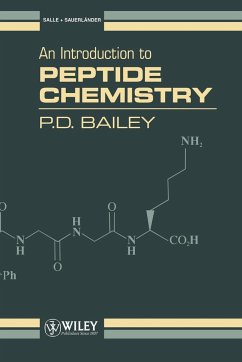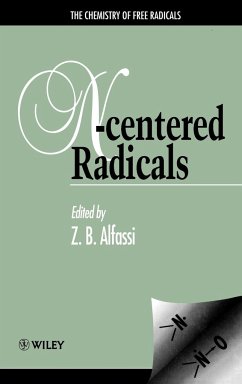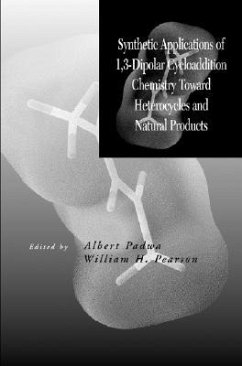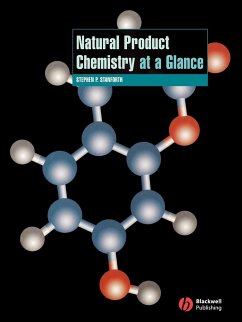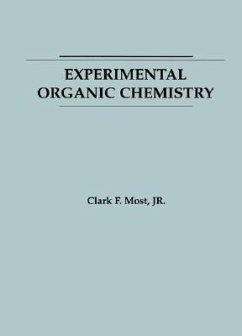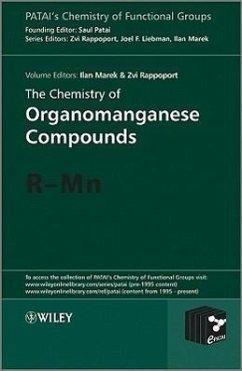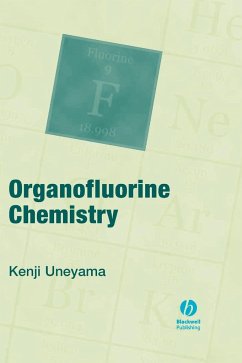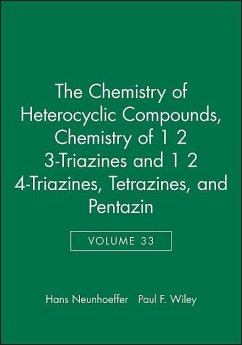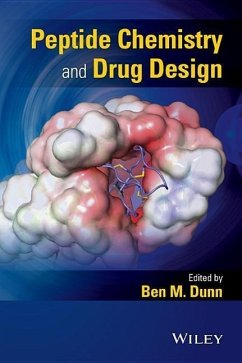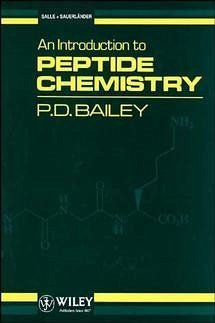
An Introduction to Peptide Chemistry
Versandkostenfrei!
Versandfertig in über 4 Wochen
371,99 €
inkl. MwSt.
Weitere Ausgaben:

PAYBACK Punkte
186 °P sammeln!
An Introduction to Peptide Chemistry P. D. Bailey, University of York Peptide chemistry is a key area in natural product chemistry, combining aspects of analysis, synthesis and biochemistry. In recent years peptide chemistry has emerged as a discipline in its own right, distinct from amino acid chemistry and protein chemistry. The importance of peptide chemistry is reflected in the intense research interest, exemplified by the progress made in solid-phase peptide synthesis. Recent developments in the determination and prediction of the three-dimensional structure of peptides, and in our unders...
An Introduction to Peptide Chemistry P. D. Bailey, University of York Peptide chemistry is a key area in natural product chemistry, combining aspects of analysis, synthesis and biochemistry. In recent years peptide chemistry has emerged as a discipline in its own right, distinct from amino acid chemistry and protein chemistry. The importance of peptide chemistry is reflected in the intense research interest, exemplified by the progress made in solid-phase peptide synthesis. Recent developments in the determination and prediction of the three-dimensional structure of peptides, and in our understanding and control of their biosynthesis, have led to dramatic advances in the field. This book is intended as a short treatise on peptide chemistry aimed at upper-level undergraduates studying chemistry and biochemistry. This concise account has been thoughtfully presented; emphasis is placed on the principles of peptide chemistry, and how these relate to organic, physical, and biological chemistry. Salle + Sauerländer Aarau-Frankfurt am main-Salzburg



